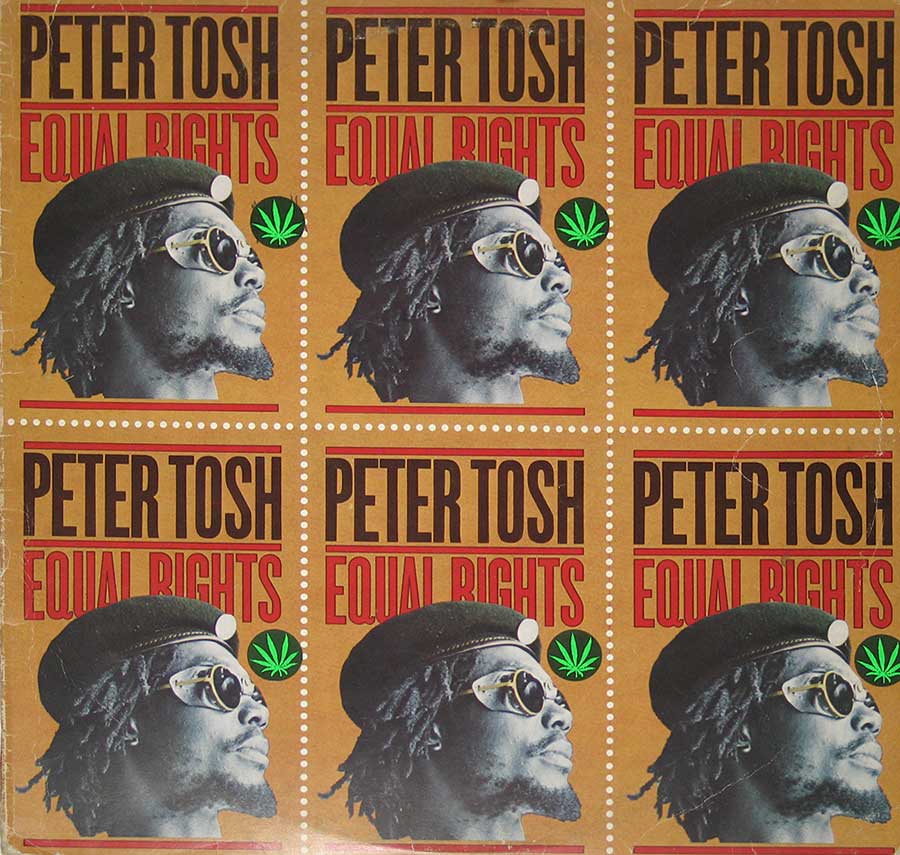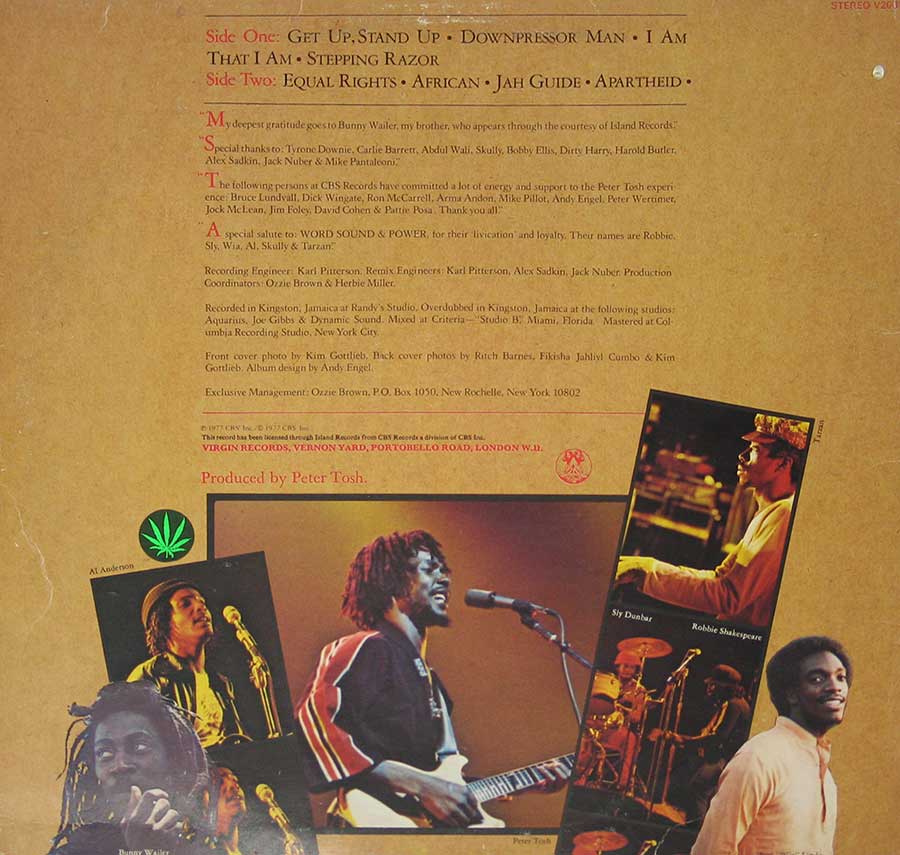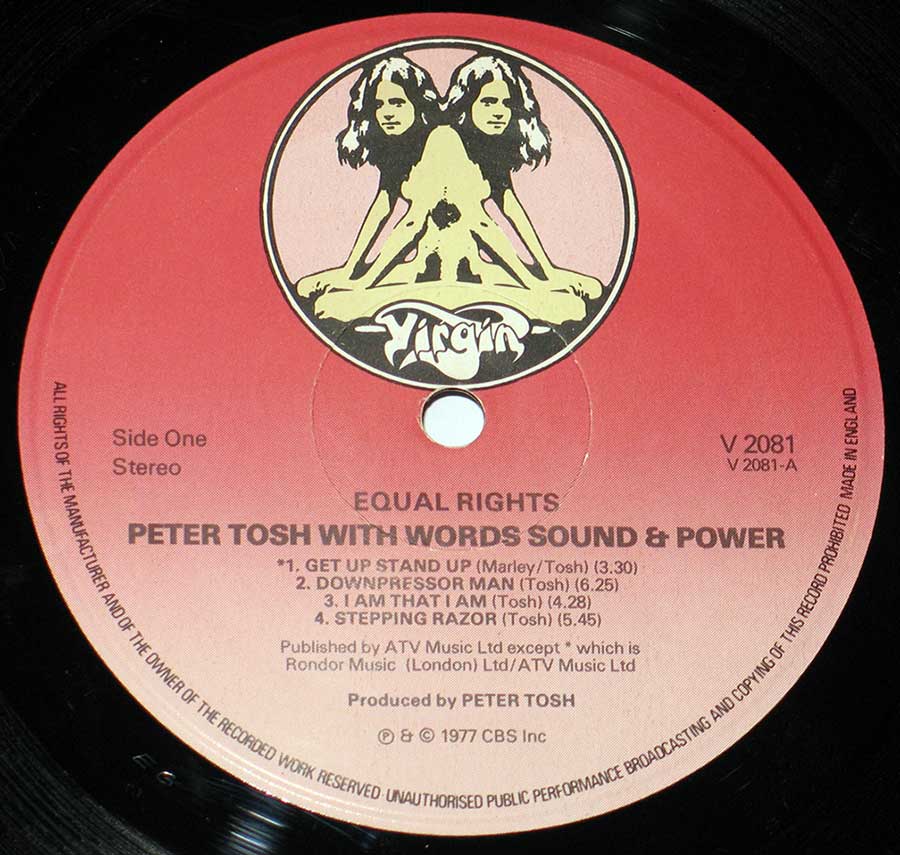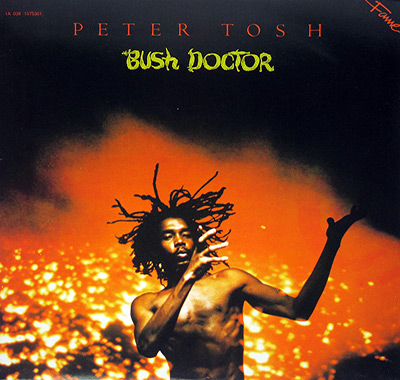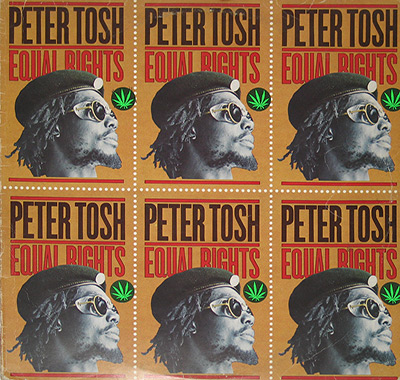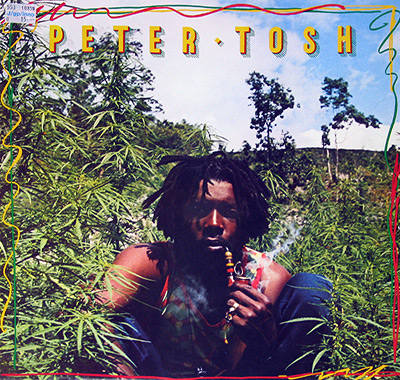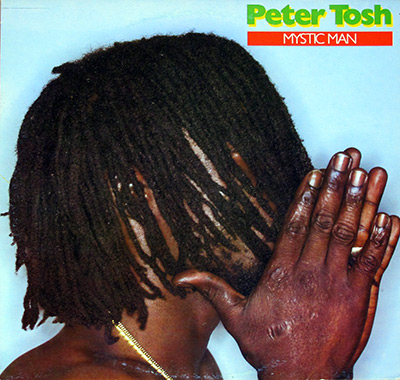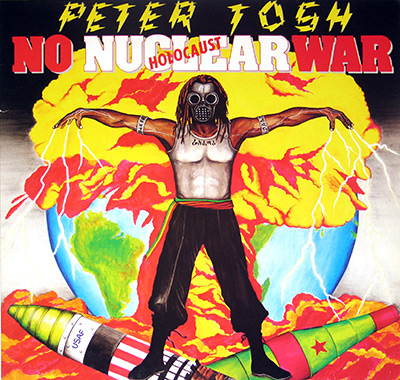"Equal Rights" (1977) Album Description:
Peter Tosh’s “Equal Rights” didn’t just arrive in 1977—it marched in, fists raised, boots dusty, and eyes fixed on every injustice the world preferred to ignore. The album hits like a manifesto disguised as a reggae LP, equal parts groove and righteous fire. Even today, it feels less like a relic and more like a telegram from the global street.
Historical and Cultural Context
England in the late seventies was a pressure cooker: unemployment up, tempers short, politics messy. Reggae had already slipped into the bloodstream of British youth, thanks to the Caribbean communities who brought sound systems, swagger, and a steady beat. By 1977, the UK was wobbling between punk’s snarling rebellion and reggae’s slower, deeper call for justice—perfect soil for Tosh’s message-heavy masterpiece.
Reggae at the time wasn’t background music; it was street reporting. The rhythms rolled slow, but the content burned hot. This was the era of “Police and Thieves,” “War,” and a hundred protest anthems echoing through Brixton and Notting Hill. Tosh stepped into that moment not as a visitor, but as someone amplifying an ongoing struggle.
How the Album Came to Be
Tosh had already broken from The Wailers with the sort of determination only a stubborn visionary can muster. “Legalize It” announced him as a solo force; “Equal Rights” cemented him as a man on a mission. Studio life in Kingston was its usual whirlwind of late nights, rewired gear, and musicians drifting in like passing weather.
The album grew from Tosh’s frustration with global hypocrisy—freedom preached but rarely practiced. You can hear him shaping each track like a piece of carved mahogany: patient, precise, and built to last longer than the politicians he was criticizing.
The Sound, Songs, and Musical Direction
This isn’t mellow beach-bar reggae. “Equal Rights” walks with a heavier step, carrying shadows and sunlight in equal measure. The drums thump like a diplomatic warning; the guitars slice with that sharp, urban shimmer Kingston specialized in during the seventies.
“Get Up, Stand Up” sounds less like a cover and more like a sharpened blade. “Downpressor Man” stretches out in a slow, ominous crawl, practically daring the world to look away. “Stepping Razor” cuts even deeper—a swaggering strut of pure confidence. And the title track? Still one of the cleanest distillations of Tosh’s worldview: equality served hot, uncompromised, and preferably today.
Comparison to Other Albums of 1977
While punk bands in London were yelling at the system, Tosh was calmly dismantling it with basslines. Compare this LP to The Clash’s debut or Marley’s “Exodus” and you’ll hear three different rebellion frequencies—Tosh’s being the slow flame that burns long after the frenzy fades.
In the reggae landscape, few albums that year carried this much gravity. Others brought joy, romance, or spirituality; Tosh brought homework for the conscience.
Controversies & Cultural Ripples
“Equal Rights” didn’t spark riots, but it definitely raised eyebrows—especially among people allergic to protest. Some listeners insisted Tosh was “too political,” which is like accusing a fire alarm of being too loud during a blaze. The messages were the point.
Yet the same sharpness that unsettled some listeners made the album a secret treasure for those who wanted their reggae with teeth instead of sunscreen.
Band Dynamics and Creative Tensions
Tosh’s solo path was fueled by equal parts conviction and frustration. Life after The Wailers meant no buffer, no compromise, and no hiding behind anyone else’s halo. The musicians orbiting this project—Barrett, Dunbar, Shakespeare, Wailer—added depth and muscle, but the direction was unmistakably Tosh’s iron hand.
The tension of independence—freedom on one shoulder, pressure on the other—gives the album its stormy backbone. Every track feels like a man who has already burned the bridges behind him.
Critical Reception and Legacy
Critics praised the album’s clarity, even if they weren’t always ready for its anger. Fans embraced it immediately, especially in England where reggae was becoming less “exotic import” and more “local language.”
Decades later, “Equal Rights” stands among the essential protest albums—not just in reggae, but across all genres. Its echoes show up in hip-hop, rock, and anywhere lyricists dare to shout what others only whisper.
